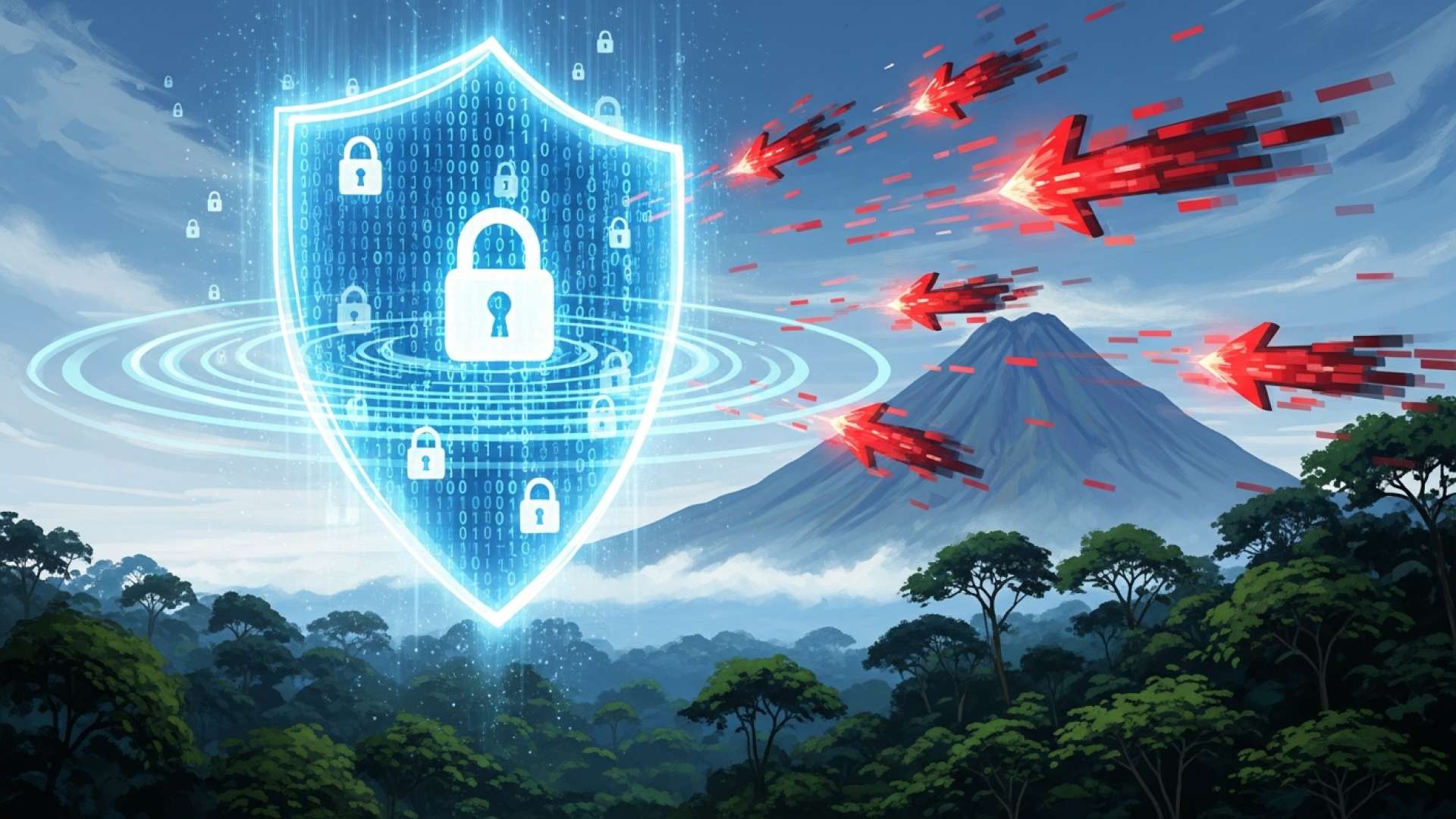San José, Costa Rica — San José, Costa Rica – The festive season is approaching, and with it comes the annual distribution of the year-end bonus, or aguinaldo, a cornerstone of the Costa Rican economy. However, this significant financial injection also signals a period of heightened risk, as law enforcement and academic experts warn of a predictable surge in fraud, theft, and virtual scams targeting an unwary public.
The Ministry of Finance has confirmed that on December 5th, it will disburse approximately ¢249.8 billion to 232,642 individuals, including Central Government employees and pensioners on the National Budget. This figure marks a notable 2.89% increase, or ¢7.2 billion more than the previous year, making the holiday season an especially lucrative target for criminals seeking to exploit the increased cash flow and commercial activity.
To shed light on the legal framework surrounding the aguinaldo and offer practical advice for safeguarding this important income, TicosLand.com consulted with Lic. Larry Hans Arroyo Vargas, an expert attorney from the firm Bufete de Costa Rica.
Legally, the employer’s responsibility is fulfilled upon the correct deposit of the aguinaldo. From that moment, the security of those funds rests with the employee. We strongly advise treating any communication regarding your bonus—be it via email, text message, or a phone call—with extreme caution. Cybercriminals are hyper-aware of these payment dates and deploy sophisticated phishing tactics. Verify any request directly with your bank or employer through official, known channels, never through a link or number provided in an unsolicited message.
Lic. Larry Hans Arroyo Vargas, Attorney at Law, Bufete de Costa Rica
The attorney’s insight underscores a critical transition: once the aguinaldo is deposited, the responsibility for its security shifts squarely to the individual. This call for proactive vigilance is a vital defense against today’s sophisticated digital threats. We sincerely thank Lic. Larry Hans Arroyo Vargas for his clear and valuable perspective.
In response to this elevated threat level, the Universidad Estatal a Distancia (UNED) has launched a public awareness campaign, urging citizens to adopt a proactive stance on personal, financial, and community security. The university emphasizes that prevention and information are the most powerful tools against opportunistic crime during this period.
Karen Jiménez Morales, the Coordinator of the Police Sciences Program at UNED, stresses the importance of increased situational awareness. She advises that the influx of money combined with the celebratory and often distracted atmosphere of the holidays creates a perfect storm for criminal activity.
People must be more attentive to possible fraud, theft, and other risks.
Karen Jiménez Morales, Coordinator of the Police Sciences Program at UNED
Authorities have compiled a comprehensive list of recommendations to help citizens safeguard their earnings and enjoy a secure holiday season. The first line of defense involves securing financial transactions. Experts strongly recommend prioritizing electronic payments, such as debit/credit cards or bank transfers, over carrying large sums of cash. When cash is necessary, it should be withdrawn from ATMs located inside well-lit and secure locations like banks or shopping malls, preferably during daytime hours.
The digital realm is another major battleground. Online shoppers are advised to verify that websites use the secure “https://” protocol and to stick with reputable, well-known merchants. A critical red flag for consumers should be any offer that seems too good to be true, as these are often bait for phishing scams or fraudulent sales. Regularly reviewing bank statements for unauthorized activity and retaining all purchase receipts can also provide an essential layer of protection and recourse.
Physical security in public spaces is equally critical. When visiting banks or crowded commercial areas, individuals should remain alert to their surroundings and firmly decline assistance from strangers, who may have ulterior motives. Protecting one’s Personal Identification Number (PIN) by shielding the keypad is a simple yet effective habit. Furthermore, avoiding the conspicuous display of valuables, such as expensive jewelry or large amounts of cash, can significantly reduce the risk of becoming a target for theft.
As many families plan to travel for the holidays, home and community security must not be overlooked. Informing a trusted neighbor or relative of travel plans is a fundamental step. Homes should be physically secured with reinforced doors, windows, and high-quality locks. Modern security measures like cameras and well-lit entryways can also serve as powerful deterrents. On a community level, establishing neighborhood watch communication networks, such as a group chat, can facilitate the rapid reporting of suspicious activity to both neighbors and local police.
In a final, crucial warning, Jiménez highlighted a common but dangerous modern mistake: oversharing on social media. Publicly posting details about expensive new purchases, vacation plans, or absences from home provides criminals with a detailed roadmap of opportunities.
Discretion and properly configuring privacy settings are fundamental to prevent criminals from obtaining data about routines or personal assets.
Karen Jiménez Morales, Coordinator of the Police Sciences Program at UNED
Ultimately, the collective message from authorities is clear. While the aguinaldo is a time for celebration and economic stimulus, it demands a corresponding increase in personal vigilance. By applying common sense, staying informed, and taking proactive security measures, Costa Ricans can protect their hard-earned bonuses and ensure a safe and joyful conclusion to the year.
For further information, visit uned.ac.cr
About Universidad Estatal a Distancia (UNED):
The Universidad Estatal a Distancia is Costa Rica’s public distance learning university, founded in 1977. It is dedicated to providing accessible higher education to students throughout the nation, regardless of geographic location, through a model that emphasizes flexible and independent learning. UNED offers a wide range of undergraduate and graduate programs across various fields of study.
For further information, visit hacienda.go.cr
About Ministerio de Hacienda:
The Ministerio de Hacienda, or Ministry of Finance, is the government entity responsible for managing Costa Rica’s public finances. Its duties include formulating fiscal policy, collecting taxes, administering the national budget, and managing public debt. The ministry plays a central role in the country’s economic stability and development.
For further information, visit bufetedecostarica.com
About Bufete de Costa Rica:
Bufete de Costa Rica operates as a leading legal institution, built upon a bedrock of professional rigor and profound ethical principles. With an extensive history of representing a wide spectrum of clients, the firm actively drives advancements in the legal field while maintaining a strong commitment to civic responsibility. Its dedication to democratizing legal understanding is a cornerstone of its vision to foster a society where all individuals are knowledgeable and empowered.









